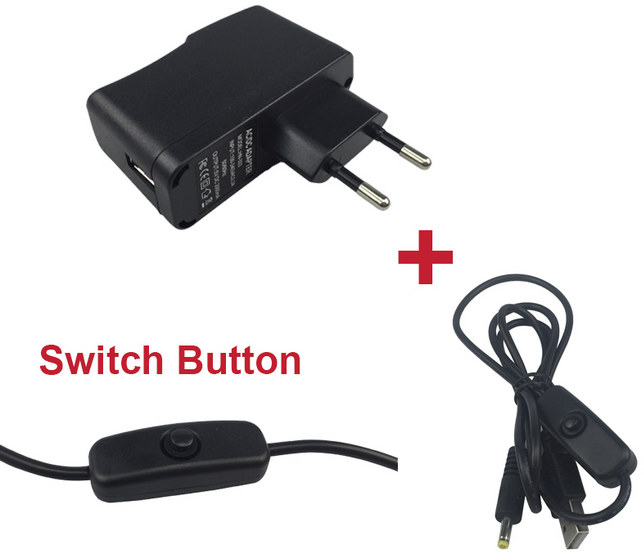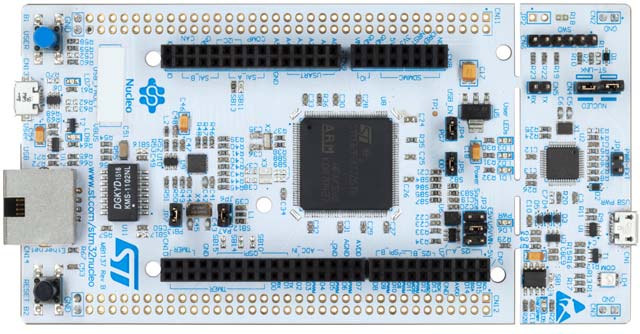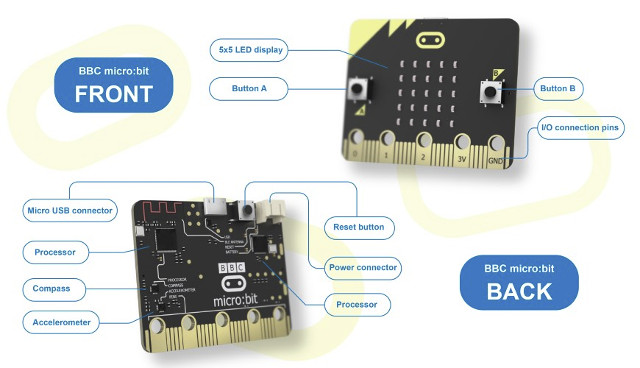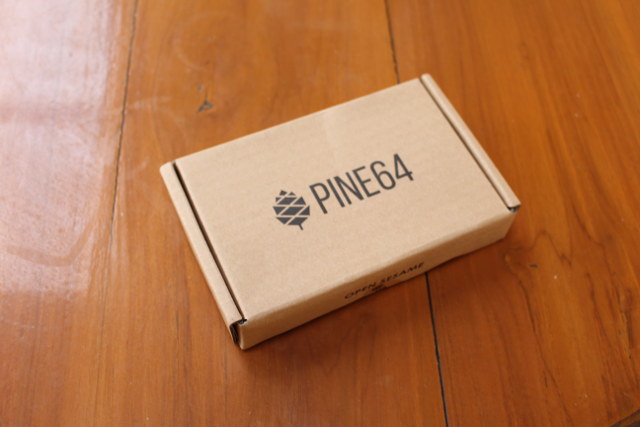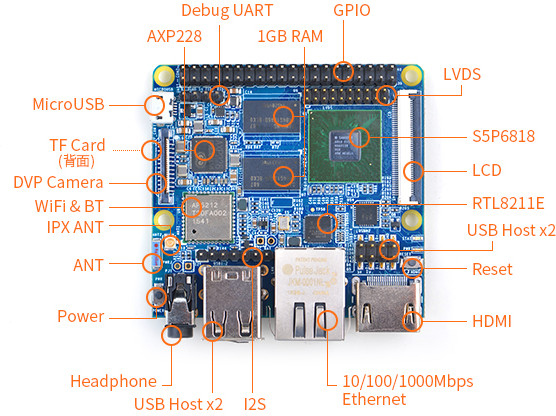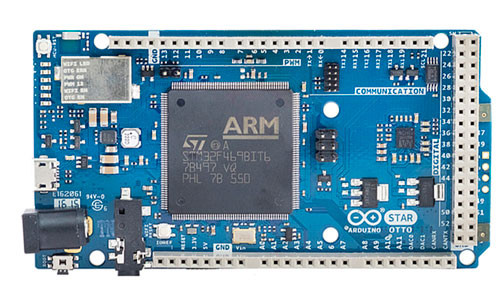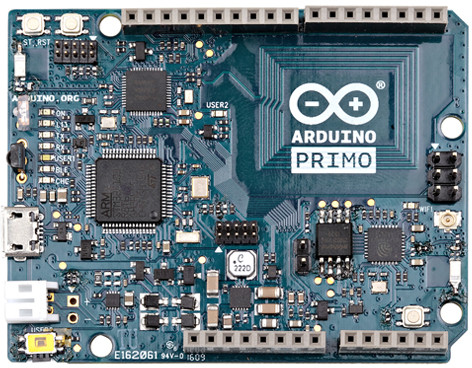Many development boards don’t have a power switch, and simply boot when you apply power. So if you need to turn off and turn on your board, you’d either remove the power cable and re-insert it, or do the same with the power adapter on the power strip or socket, but the latter is not always convenient, and the former may damage the power connector, especially if the board uses a fragile micro USB connector for power. The solution to this small problem is to use a USB cable with an on/off switch. The example above is a 5V/2A with a switch button with the plug working with Orange Pi, Banana Pi M2, and other board using a 4mm jack (like PS4) for power. That model sells for $3.90 on Aliexpress. Another solution is instead to buy a short USB cable with an on/off switch instead for just around $1 […]
STMicro Unveils Two Low Cost STM32F7 ARM Cortex M7 Development Boards
STMicroelectronics introduiced its STM32F7 ARM Cortex M7 micro-controller family in 2014, and they released a $49 STM32F746G discovery board later in 2015. The company has now launched two new low cost development boards with the $23 STM32 Nucleo-144 board based on STM32F767 MCU, and a $79 Discovery Kit powered by STM32F746 MCU with TFT-LCD and MIPI-DSI support. STM32 Nucleo-144 development board Key feature of NUCLEO-F767ZI board: MCU – STMicro STM32F767ZI ARM Cortex M7 microcontroller @ 216 MHz with FPU, DSP, MMU, 2MB flash, 512 KB SRAM, 16 KB instruction TCM RAM (for critical real-time routines), and 4 KB backup SRAM Connectivity – IEEE-802.3-2002 compliant Ethernet connector USB – 1x micro USB OTG or full speed device Extension: ST Zio connector including support for Arduino UNO v3 connectivity, and additional signals (A6 to A8, D16 to D72) ST morpho extension pin header footprints for full access to all STM32 I/Os On-board […]
You can now buy BBC micro:bit board for $19
BBC recently distributed micro:bit boards to UK schools to get student interested in electronics and help them learn more about this subject, but so far it was not for sale to the general public, but this has now changed since the British broadcaster now launched the board for 13 GBP (~$19) via Element14/Farnell and others distributors. The board is powered by Nordi Semi nRF51822 SoC with ARM Cortex M0 micro-controller and Bluetooth LE connectivity, features motion sensors, plenty of LEDS, a few buttons, a micro USB connector for power & programming, as well as a header for LiPo batteries. There are various ways to program the board either interpreted languages such as Python or JavScript, or graphical drag and drop programs such as Microsoft Block Editor. All technical details and example projects available on Micro:bit official website. Beside the board only, several kits are being offered included micro:bit Go with […]
Pine A64 Board Quick Start Guide & Benchmarks with Android 5.1
Pine A64 is one of the development boards with the best cost/performance ratio, as it sells as low as $15 + shipping. I received Pine A64+ board with 2GB RAM at the end of last month, and decided to start playing with Android, as Linux distributions such as Longsleep Ubuntu appear to require a little more work. So in this post, I’ll report my experience with installing and running Android 5.1 on the board, and share some Android benchmark results. Pine A64 Board Pictures You’ll receive the board in cardboard package with Pine64 branding. You can check which version of the board you’ve been sent on the side of the package: PA64512 (512 MB RAM), PA641GB (1GB RAM), or PA642GB (2GB RAM). The top of the board has been photographed often but here it is again. I’ve been sent the 2GB version without wireless module. The bottom of the board […]
Getting Started with Beaglebone Green Wireless Development Board
SeeedStudio introduced BeagleBone Green Wireless based on BeagleBone Green, but replacing the Ethernet port by a Wilink8 WiFi and Bluetooth module, and providing 4 USB ports in total. I’ve also ready taken some picture of the board, and Grove Base Cape to addition the company’s add-on boards via I2C, UART, analog, or digital interfaces. So today, I’ll report about my experience getting started with the board. First Boot of BeagleBone Green Wireless Since the board comes with a Debian image installed on the internal 4GB eMMC flash, checking out the board should be really easy. The Wiki may help, but for a first try to check the board is indeed working, you can simply connect it to a 5V power supply, or the USB port of your computer to port it up. I’m using a development machine running Ubuntu 14.04 with both Ethernet connected to my router, and a WiFi […]
$35 NanoPi M3 Octa Core 64-bit ARM Development Board is Powered by Samsung S5P6818 Processor
A few weeks after introducing NanoPC-T3 single board computer based on Samsung S5P6818 octa-core Cortex A53 processor, FriendlyARM is now launching a cost-down version called NanoPi M3 for just $35 with 1GB RAM, and booting from a micro SD card. NanoPi M3 board specifications: SoC – Samsung S5P6818 octa core Cortex A53 processor @ up to 1.4GHz with Mali-400MP GPU System Memory – 1 GB 32-bit DDR3 Storage – 1x micro SD card slot Connectivity – Gigabit Ethernet (RTL8211E), 802.11 b/g/n WiFi and Bluetooth LE 4.0 (Ampak AP6212) with on-board chip antenna and IPX antenna connector Video Output / Display I/F – HDMI 1.4a up to 1080p60, LVDS, parallel RGB LCD Audio I/O – HDMI, 3.5mm audio jack, 7-pin I2S header Camera – 1x DVP interface USB – 2x USB 2.0 type A host ports; 1x micro USB 2.0 client port; 2x USB 2.0 host ports via 8-pin header Expansions […]
STAR OTTO Arduino Board is Based on STMicro STM32 32-bit Cortex-M4 MCU & ESP8266 WiFi SoC
Thanks to STMDuino32 community, there was already support for the Arduino IDE on board based on STMicro STM32 ARM Cortex-M micro-controllers, but STMicroelectronics and Arduino Srl have introduced the STAR program to bring official support, and unveiled their first board with STAR OTTO Arduino board powered by STM32F469 Cortex M4 MCU at Maker Faire Bay Area 2016. Key features of STAR OTTO board (ARD-OTTO-STM32): MCU – STMicro STM32F469BIT6 ARM Cortex-M4 MCU @ 180 MHz with 2 MB Flash memory, 384 KB SRAM, Chrom-ART graphics accelerator System Memory – 16 MB SDRAM Storage – 128 KB EEPROM, microSD slot Connectivity – Wi-Fi 802.11b/g/n @ 2.4 GHz via Espressif ESP8266 Display I/F – MIPI DSI display interface Camera – Camera connector Audio – 2x MEMS digital microphones, headphone and speaker output USB – 1x micro USB host interface Expansion – Arduino Uno, Due, Mega connectors including 8x ADC, 2x DAC, 32 digital […]
Arduino Primo Board Supports WiFi, Bluetooth LE, and NFC
A couple of weeks after unveiling Arduino UNO WiFi with ESP8266 and Atmel AVR, Arduino Srl has introduced Arduino PRIMO board with Nordic Semi nRF52 MCU with Bluetooth Smart and NFC, ESP8266 for WiFi, and STM32 to handle GPIOs and USB UART during May Faire Bay Area 2016. Arduino Primo board (A000135) specifications: Service Micro-controller STMicro STM32F103R8T6 ARM Cortex-M3 MCU @ 72 MHz with 64KB flash, 20KB SRAM USB/Uart converter & CMSIS-DAP GPIO expander, IrDA Board power management Operating Voltage – 2.0 to 3.6 V Arduino Micro-controller Nordic nRF52832 ARM Cortex-M4F MCU @ 64 MHz with 512 KB flash, 64KB SRAM Analog I/O Pins – 6 + 1 DAC DC Current per I/O Pins – 7 mA Bluetooth Smart – Up to +4 dBm output power, -96 dBm sensitivity Other features – PDM interface, AES HW enc, NFC tag WiFi Micro-controller Espressif ESP8266 Tensilica Xtensa LX106 WiSoC @ 80 MHz […]


